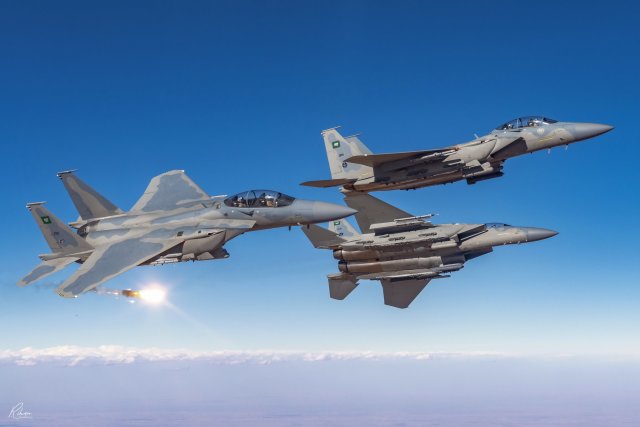It is assumed that by the end of the 2020s its volume will increase by at least 25-30%
MOSCOW, September 28. /TASS/. The Middle East will remain one of the main markets for military aircraft manufacturers over the next ten years. Such data were presented during a webinar dedicated to the state of the aviation and space market in the Middle East and organized by the specialized publication Aviation Week & Space Technology.
"The Middle East is still one of the key markets for manufacturers of military aircraft and will remain so for the next ten years. It is assumed that by the end of the 2020s its volume will increase by at least 25-30%," the presentation of the journal published on the webinar says.
As noted in the presentation, the market of the countries of the region will become one of the key ones for fifth-generation fighters intended for export. "The countries of the Middle East are conducting large-scale programs to re-equip their air forces. It is expected that they will become the first operators of export-oriented fifth-generation fighters, which are currently being developed by the world's leading manufacturers," the document says.
Unmanned aircraft will play an important role in the formation of the military aviation market in the Middle East. "Technologies of attack drones, paired unmanned aircraft of the loyal wingman type, and integration of manned and unmanned aircraft on the principle of MUM-T (MANNED-unmanned Teaming; with the implementation of this concept, a manned combat aircraft controls large-sized attack drones) will be decisive in the formation of the Middle East market over the coming decade," the presentation says.
High-precision air-based weapons are also in demand in the region. "The cluster of high-precision aviation weapons in the Middle East military aviation market is quite large and will account for up to a third of its total volume by 2027. Moreover, both guided aerial bombs and compact air-to-surface missiles will be in demand by the countries of the region," the presentation says.
The means of combating unmanned aerial vehicles still have a high market potential in the region. "The countries of the Middle East need means of countering unmanned aerial vehicles made according to the soft-kill principle; this trend will continue for at least five to seven next years," the presentation says.

